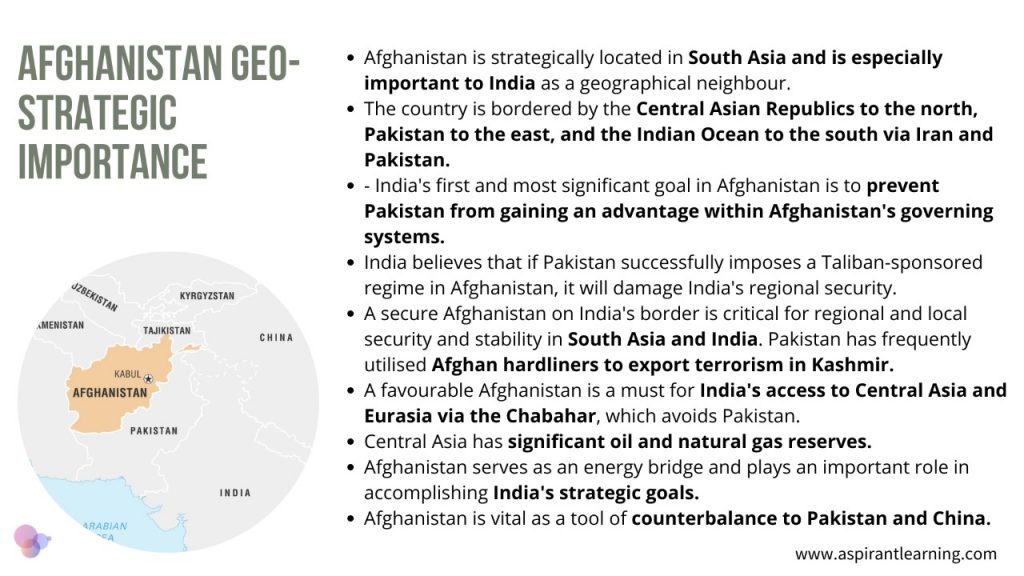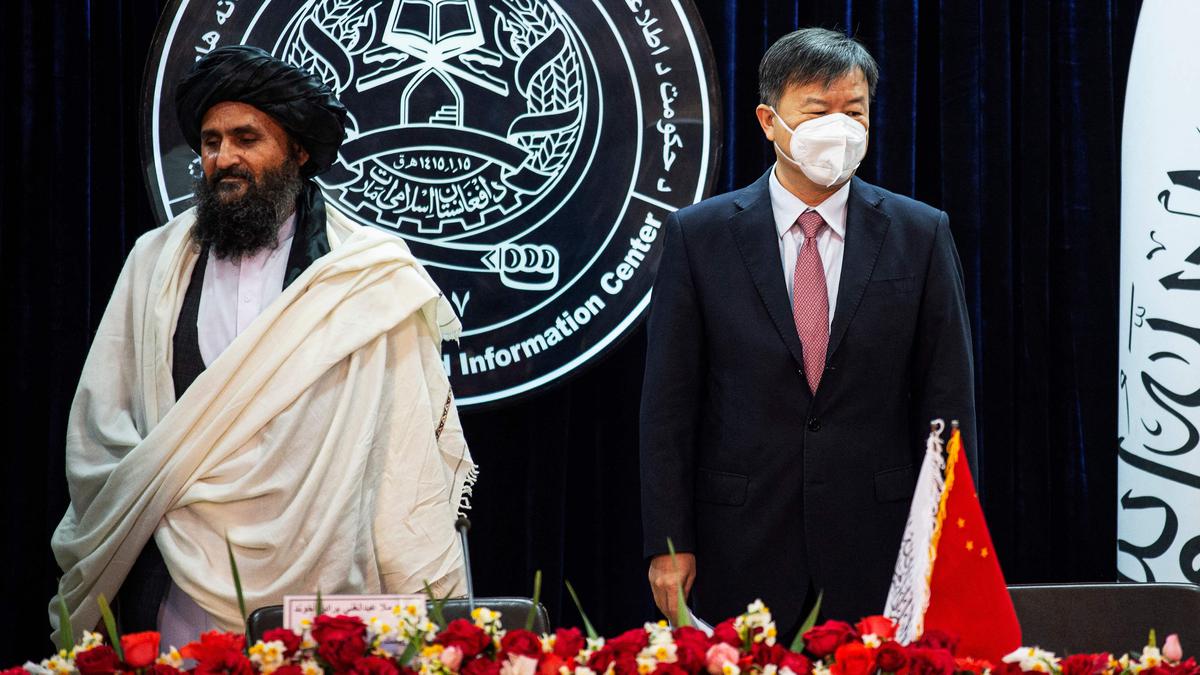News Highlight
The oil deal could be a fundamental test for the future of China-Afghanistan cooperation.
Key Takeaway
- The signing of a multi-million-dollar deal between Xinjiang Central Asia Petroleum and Gas Co.
- Additionally, the Taliban in Kabul is being marketed by the latter as its first major economic win since the return of the Islamic Emirate in August 2021.
- Moreover, the deal, estimated to be $540 million, gives Beijing access to the Amu Darya basin in northern Afghanistan.
- Afghanistan has small and medium-sized mineral fields, most of which remain unexplored.
- While the deal has created a lot of noise, the basin had been earmarked by the now-erstwhile Republic’s leadership more than a decade ago for China to develop.
- The Taliban-led interim government had been seeking a significant economic victory, dangling the country’s mineral wealth mainly in front of China while also trying to impress other countries.
China’s Economic Interest in Afghanistan
- Lithium Deposits
- Firstly, Afghanistan may have the world’s most widespread lithium reserves.
- Lithium is an essential component in lithium-ion batteries, widely used in electric vehicles and the renewable energy sector.
- In addition, China is the world’s leading manufacturer of lithium-ion batteries.
- It may seek a long-term agreement with the Taliban in exchange for mining rights and ownership arrangements.
- It is to develop Afghanistan’s massive unexplored lithium reserves.
- Mineral Reserves
- Afghanistan’s mineral resources are estimated to be worth up to $3 trillion.
- Afghanistan is rich in gold, oil, bauxite, rare earth, chromium, copper, natural gas, uranium, coal, iron ore, lead, zinc, gemstones, talc, sulphur, travertine, gypsum, and marble.
- China’s Belt and Silk Road
- China’s crucial Belt-and-Road Initiative (BRI) will be enhanced if it can be extended from Pakistan to Afghanistan via a Peshawar-to-Kabul motorway.
- Furthermore, this would create a much shorter land channel for Chinese commodities to reach Middle Eastern markets more quickly and conveniently.
China’s Security Interest in Afghanistan
- According to the UN Security Council, the East Turkestan Islamic Movement (ETIM) originates in Afghanistan.
- Additionally, they garnered support from the Taliban and Al Qaeda in the 2000s.
- ETIM is an Uyghur Islamic extremist group in Western China that seeks to establish East Turkestan as an independent state in the Xinjiang area.
- In addition, ETIM, as a result, poses a direct threat to China’s security and territorial integrity.
- Subsequently, China is concerned that Afghanistan could become a haven for the Uyghur extremist organisation.
- Furthermore, they could take revenge for the widespread persecution of Uyghurs.
Two challenges in China playing a role in stabilising Afghanistan
- Caution in Chinese policy
- The first is on the deep origins of apprehension in Chinese policy.
- China will not rush into the Afghan vacuum because of the promise of mining Afghanistan’s natural resources or the vanity of being the world’s newest superpower.
- China is very concerned about the Taliban’s ideology and possible involvement in inciting unrest in its restive Muslim-majority province of Xinjiang.
- In addition, Beijing cannot rely on its unique connection with the Pakistani army to secure China’s borders and interests in Afghanistan.
- The increased attacks on CPEC projects in Pakistan highlight the difficulty of pursuing economic development in the face of recurrent violence.
Priorities of Taliban
- Firstly, the second group of issues is related to Taliban priorities.
- It remains to be seen whether the Taliban considers Afghanistan’s economic development a key priority.
- More fundamentally, there is no consensus on the importance of economic modernisation in the Taliban’s adamant desire to establish an Islamic emirate in Afghanistan.

Pic Courtesy: The Hindu
Content Source: The Hindu



